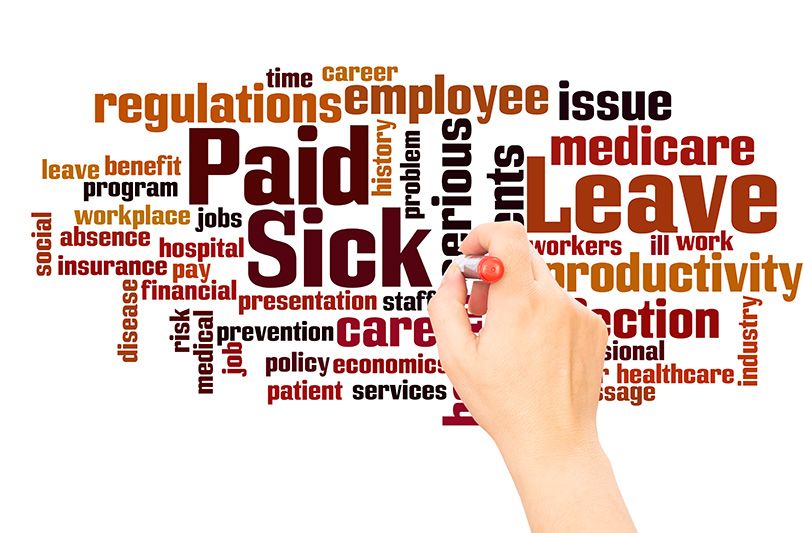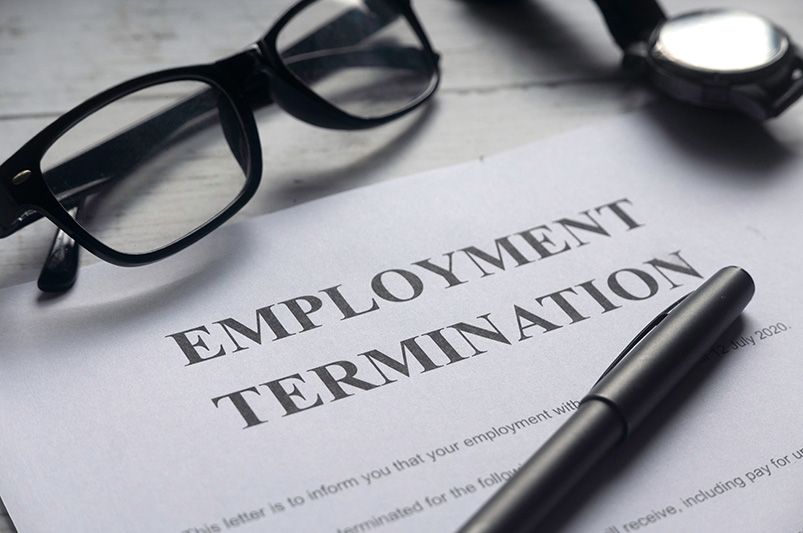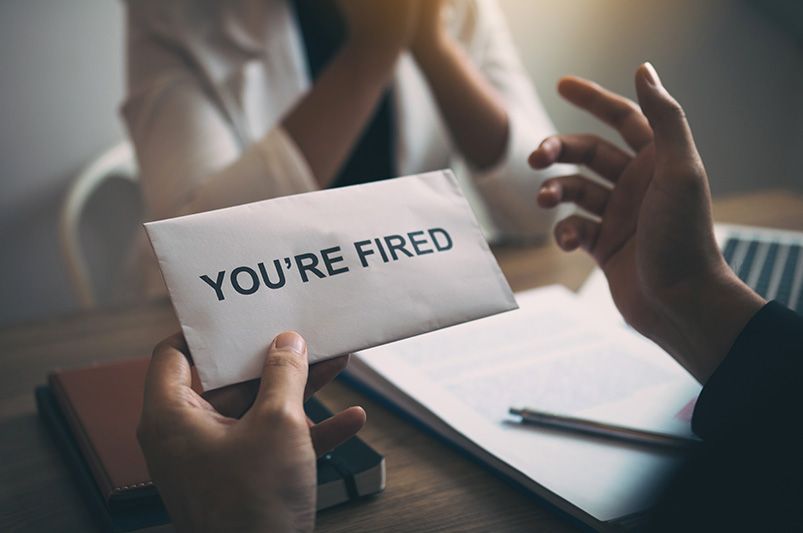Can You Be Fired for Taking Sick Days in California? Understanding Protected Leave Rights
Published: 13/11/2025 | Updated: 18/12/2025
When you wake up sick, the last thing you should worry about is whether calling out could cost you your job. Yet every day, California workers face subtle (and not-so-subtle) pressure from employers who punish or fire employees for using sick time — even though state law provides strong protections.
So let’s answer the big question clearly:
In California, you cannot legally be fired for using sick days you are entitled to or for taking protected CFRA family or medical leave.
However — many workers are fired anyway. Sometimes employers use excuses like “attendance issues,” “policy violations,” or “performance problems” to disguise retaliation.
This blog breaks down when sick leave is protected, how CFRA medical leave works, what retaliation looks like, and what steps to take if you believe your termination was illegal.
Understanding Sick Leave Rights in California
California has some of the strongest sick leave protections in the country. Two main laws govern this area:
-
California Paid Sick Leave Law (Healthy Workplaces, Healthy Families Act)
-
Local city ordinances (like in LA, San Diego, Oakland, San Francisco)
Most employees have a legal right to:
-
Accrue paid sick leave
-
Use sick leave without retaliation
-
Be free from discipline for lawful sick leave absences
What Can You Use Sick Leave For?
Under California law, you can take sick leave for:
-
Your own illness or medical appointment
-
A family member’s illness or appointment
-
Preventive care
-
Recovery from domestic violence, sexual assault, or stalking
-
Public health emergencies (like COVID-19)
Does Your Employer Have to Approve Sick Leave?
No.
You are allowed to use accrued sick leave when you need it. Employers cannot force you to:
-
Find your own replacement
-
Come in sick
-
Provide diagnoses or overly intrusive medical details
-
Work from home instead of taking leave
Can You Be Fired for Using Earned Sick Days?
If you use sick leave you are legally entitled to, your employer cannot fire you for it.
California Labor Code specifically prohibits:
-
Termination
-
Discipline
-
Retaliation
-
Attendance point penalties
-
Schedule cuts
-
Threats or intimidation
…based on lawful sick time use.
But Here’s Where Problems Start
Some employers try to get around the law by claiming:
-
“You called out too many times.”
-
“Your absence wasn’t approved.”
-
“You didn’t give enough notice.”
-
“We’re restructuring.”
-
“Your performance is inconsistent.”
If the timing of your termination is suspiciously close to your sick leave — it’s often a red flag for retaliation.
What Counts as Employer Retaliation?
Retaliation can be obvious or subtle. Common examples include:
-
Being fired shortly after using sick days
-
Getting disciplined for absences covered by the law
-
Being written up for last-minute medical appointments
-
Getting demoted after requesting leave
-
Suddenly receiving negative performance reviews
-
Having shifts cut or being assigned worse duties
-
Being told to “tough it out” or threatened for calling out
If any of this happens after you use sick leave, you may have a legal claim.
How CFRA Protects Longer Medical or Family Leave
While paid sick leave usually covers short absences, the California Family Rights Act (CFRA) protects longer periods of medical or family leave.
Under CFRA, eligible employees can take up to 12 weeks of unpaid, job-protected leave for:
-
A serious health condition
-
Caring for a spouse, child, parent, grandparent, or sibling
-
Bonding with a new child
-
Military family leave
Eligibility Requirements
To qualify, you must:
-
Work for an employer with 5 or more employees
-
Have worked at least 12 months
-
Have worked 1,250 hours in the past year
During CFRA Leave, Your Employer Must:
-
Hold your job or a comparable job
-
Continue your benefits
-
NOT retaliate for taking leave
Firing Someone on CFRA Leave Is Usually Illegal
If you were terminated:
-
Before starting CFRA leave
-
During CFRA leave
-
Immediately after returning from CFRA leave
…it may be considered wrongful termination.
What Qualifies as Protected Leave?
Here’s a quick breakdown of what California considers protected:
Protected
-
Using accrued California paid sick leave
-
Using local city sick leave (LA, SF, Oakland, SD)
-
Taking CFRA leave for your own serious health condition
-
Taking CFRA leave for family medical care
-
Taking baby-bonding leave
-
Taking time off for domestic violence or stalking recovery
-
Attending medical appointments
-
Using sick time for preventive care (e.g., dentist, physical, therapy)
-
Staying home with a sick child
-
COVID-related government-mandated quarantine
Not Protected
-
Absences after your sick leave is exhausted
-
No-call/no-show situations
-
Excess tardiness not related to illness
-
Absences unrelated to medical or family needs
But even “borderline” situations depend on facts — which is why talking to an attorney is powerful.
Can an Employer Require a Doctor’s Note?
Sometimes yes — but with limitations.
Under California law, employers can request reasonable documentation after three consecutive days of absence.
However, they cannot:
-
Require a diagnosis
-
Ask for detailed medical conditions
-
Reject legally valid notes
-
Demand doctor’s notes for every single sick day in a harassing manner
If your employer punishes you even with proper documentation, that is often unlawful.
Employer Excuses That Often Signal Illegal Retaliation
If you were fired after sick leave, you may hear:
-
“We’re downsizing.”
-
“You weren’t dependable.”
-
“We reassessed your role.”
-
“We’re making a change.”
-
“Your performance isn’t meeting expectations.”
Sometimes these reasons are real…
But often, they’re camouflage.
Retaliation often looks like:
-
Sudden write-ups after years of good reviews
-
Being disciplined for absences allowed by law
-
Termination right after calling out sick
-
Shift cuts immediately after requesting leave
-
Negative comments like “We need someone healthier” or “You’re too unreliable”
If the timing doesn’t make sense — it usually isn’t a coincidence.
What to Do If You Were Fired After Taking Sick Leave
If you suspect retaliation or wrongful termination:
1. Document Everything
Keep records of:
-
Sick leave taken
-
Doctor’s notes
-
Emails and texts
-
Write-ups
-
Termination notice
-
Comments made by managers
2. Request Your Personnel File
California law gives you the right to request your entire employment file.
3. Write down a timeline
This helps attorneys immediately spot retaliation patterns.
4. Contact an employment lawyer quickly
Retaliation cases are time-sensitive — and experienced attorneys can determine fast whether your rights were violated.
If You Were Fired After Taking Sick Leave or Medical Leave, You May Have a Case.
California gives workers strong protections — but employers don’t always follow the law. If you believe you were wrongfully terminated after taking sick days or CFRA leave:
Talk to a JusticeGuys attorney today.
We’ll review what happened, explain your rights, and help you take the next steps — at no cost upfront.
Your health should never cost you your job.
Downloadable PDF - Protected Leave in California: Quick Guide
A printable PDF that explains:
-
When sick leave is protected
-
When CFRA medical leave applies
-
What retaliation looks like
-
What documentation to keep
-
What to do if you were fired
Download your California Protected Leave Guide and learn exactly what to do if your employer punished you for taking sick time.
FAQs
1. Can my employer fire me for calling out sick in California?
No. If you used legally accrued sick leave or took protected CFRA leave, your employer cannot fire you for it.
2. What counts as protected sick leave?
Any accrued paid sick time used for illness, medical appointments, preventive care, or caring for a family member.
3. How long is CFRA leave?
CFRA provides up to 12 weeks of unpaid, job-protected leave for serious medical needs, family care, or bonding with a new child.
4. Do I need a doctor’s note for sick leave?
Employers may request reasonable documentation after three consecutive days, but they cannot demand diagnoses or excessive detail.
5. What if my employer says I was fired for “attendance issues”?
If those absences were protected by law, this may be considered retaliation or wrongful termination.


